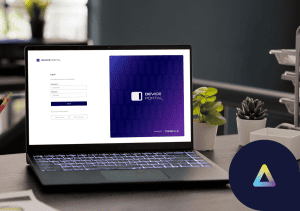Bring Your Own Device (BYOD), has gained popularity popular in recent years.
But BYOD is not limited to the private sector. More and more as many government agencies are now allowing use of personal devices. It’s even common for them to allow third-party contractors to use their existing corporate hardware rather than issuing them government devices.
But is BYOD a good idea for government bodies, and can it be secure?
Why the public sector is looking at BYOD policies
Mobility, flexibility and cost-reductions are probably the three main reasons BYOD has taken off in the public sector. Employees may need to access work-related information on the move. Or if working from home. Their own personal laptop allows them to do so. Most organizations in the public and private sectors are now deploying some form of virtual desktop or workspace and leveraging applications deployed in the cloud, removing the need to be “on-site”.
Departments can also save a huge amount of the money spent on purchasing devices. For departments that may have limited budgets this is significant.
And where third-party contractors or agencies are being deployed, especially if it’s short-term, it makes financial and operational sense to enable them to use whatever existing devices their main employer has issued them. Or, indeed, their personal devices if they are a freelancer or consultant.
No one would argue that these use cases make sense; the issue of course is data security.
The security challenges of BYOD for the public sector
There are obvious challenges associated with BYOD in government agencies; security and privacy concerns. An employee’s personal may not have the required same level of security features. This leaves them exposed to cyberattacks and data breaches.
The UK’s National Cybersecurity Centre guidelines on BYOD are largely positive, but they outline two primary cautions:
- How thoroughly the device can be managed (how much this is allowed by the owner).
- How well considerations of usability have been balanced with security.
To address these concerns, many government agencies and bodies have implemented policies, procedures, and technologies to secure and optimize the use of personal devices for work purposes. These include things like device encryption, password protection, separation of personal and private data, and enforcing regular software updates.
In addition, many agencies may require employees to sign a BYOD agreement that outlines their responsibilities for protecting sensitive information and reporting any security incidents.
The trend towards BYOD in Government Bodies
Despite these challenges, the trend of BYOD in government agencies and bodies continues to grow. And a significant factor in this the adoption of remote and hybrid work. Looking at the The National Association of State Chief Information Officers (NASCIO) 2021 State CIO survey is revealing. 86% of respondents said they expect to see remote work as an ongoing part of their operations.
Even the U.S. Department of Defense (DOD) implemented has a BYOD program. This shows just how much the perception of security has changed.
Is BYOD right for your government department?
BYOD can bring mobility, flexibility, and cost savings. But security and data privacy concerns need to be addressed.
ThinScale has been instrumental in deploying and securing countless BYOD deployments globally, for both the private and public sector. Get in touch to learn more about what we can do for you.




